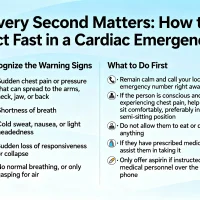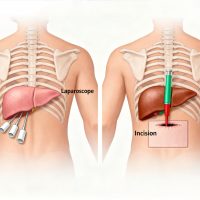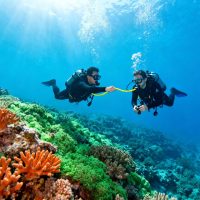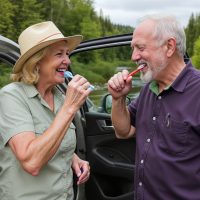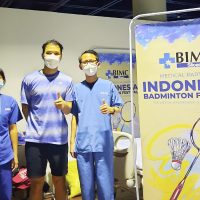
Understanding Heat-Related Emergencies in Bali
When the Heat Strikes: Emergency Response for Heatstroke and Dehydration – Bali’s tropical climate, with temperatures regularly exceeding 32°C and high humidity levels, creates perfect conditions for heat-related medical emergencies. At BIMC Hospital Kuta, we treat numerous cases of heatstroke and severe dehydration, particularly among tourists who underestimate the intensity of Indonesia’s tropical heat.
Heat-related illnesses can escalate rapidly from mild discomfort to life-threatening emergencies. Understanding the warning signs and knowing how to respond can prevent serious complications and save lives.
Our emergency medical team at BIMC Hospital Kuta has extensive experience treating heat-related conditions, from mild heat exhaustion to severe heatstroke requiring intensive care intervention.
Recognizing Heat-Related Medical Emergencies
Heat Exhaustion Warning Signs:
Early Symptoms:
- Heavy sweating or sudden cessation of sweating
- Weakness, fatigue, and dizziness
- Nausea and vomiting
- Headache and muscle cramps
- Rapid, weak pulse
Progressive Symptoms:
- Cool, moist, pale skin despite heat exposure
- Low blood pressure when standing
- Mild confusion or irritability
- Body temperature between 37-40°C
Heatstroke Critical Signs:
Severe Neurological Symptoms:
- Altered mental state, confusion, or delirium
- Loss of consciousness or coma
- Seizures or convulsions
- Aggressive or bizarre behavior
Physical Emergency Indicators:
- Body temperature above 40°C
- Hot, dry skin (classic heatstroke) or continued sweating (exertional heatstroke)
- Rapid, strong pulse progressing to weak pulse
- Severe headache and dizziness
Life-Threatening Complications:
- Organ failure symptoms
- Difficulty breathing
- Cardiac arrhythmias
- Complete loss of consciousness
Immediate Emergency Response Protocol
For Heat Exhaustion:
Step 1: Remove from Heat Move the person to air-conditioned or shaded, cool environment. Remove excess clothing and loosen tight garments Position person lying down with legs elevated
Step 2: Cooling Measures Apply cool, wet cloths to skin. Use fans to increase air circulation Offer small sips of cool water if person is conscious and able to swallow
Step 3: Monitor and Assess Check vital signs every 5 minutes Watch for improvement within 30 minutes Seek medical attention if symptoms worsen or don’t improve
For Heatstroke Emergency:
Step 1: Call Emergency Services Immediately Contact BIMC Kuta Emergency: +62 361 761263 / +62 812 386 5548This is a life-threatening emergency requiring immediate medical intervention
Step 2: Aggressive Cooling Move person to coolest available environment Remove all unnecessary clothing Apply ice packs to neck, armpits, and groin Use cold water immersion if available and safe
Step 3: Monitor Vital Functions Check breathing and pulse continuously Be prepared to perform CPR if trained Do not give fluids to unconscious person Position on side if vomiting occurs
Critical Warning: Never leave someone with suspected heatstroke alone. Brain damage can occur within minutes without proper medical treatment.
High-Risk Situations in Bali
Outdoor Activities with Elevated Risk:
Temple and Cultural Site Visits: Limited shade, prolonged sun exposure, walking on hot surfaces
Beach Activities: Reflected heat from sand and water, prolonged sun exposure, dehydration from saltwater activities
Adventure Sports: Hiking, cycling, surfing, and other physically demanding activities in tropical heat
Motorcycle Tours: Direct sun exposure, protective gear trapping heat, limited cooling opportunities
Environmental Risk Factors:
Peak Heat Hours: 09:00 AM to 4:00 PM, when UV index is highest
High Humidity: Reduces body’s natural cooling through sweat evaporation
Urban Heat Islands: Concrete and asphalt in Bali areas increase ambient temperature
Seasonal Variations: Dry season (April-October) with lower humidity but intense direct heat
Personal Risk Factors:
Age Extremes: Children under 4 and adults over 65 have increased vulnerability
Medical Conditions: Diabetes, heart disease, kidney problems, and mental health medications
Alcohol Consumption: Increases dehydration risk and impairs heat regulation
Fitness Level: Unaccustomed physical exertion in tropical climate
Prevention Strategies for Tropical Climate
Hydration Management:
Pre-Activity Hydration: Drink 500ml of water 2 hours before outdoor activities
During Activity: 150-250ml every 15-20 minutes during prolonged heat exposure
Post-Activity: Replace 150% of fluid lost through sweating
Electrolyte Balance: Include sports drinks for activities longer than 1 hour
Clothing and Protection:
Fabric Choice: Light-colored, loose-fitting, breathable materials
Sun Protection: Wide-brimmed hats, UV-protective sunglasses, high SPF sunscreen
Cooling Accessories: Cooling towels, portable fans, insulated water bottles
Activity Planning:
Time Management: Schedule outdoor activities before 10 AM or after 4 PM
Rest Breaks: Take frequent breaks in shaded or air-conditioned areas
Buddy System: Never engage in high-risk activities alone
Why Choose BIMC Kuta for Heat Emergencies
Immediate Response Capability:
24/7 Emergency Services: Always available for heat-related medical emergencies
Experienced Tropical Medicine Team: Specialists familiar with heat-related illnesses in tropical climates
Advanced Cooling Equipment: Medical-grade cooling systems for rapid temperature reduction
Critical Care Facilities: ICU capabilities for severe heatstroke cases
International Standards:
ACHSI Accreditation (Australian Council On Healthcare Standards International)
Multilingual Staff: Communication in English, Indonesian, and other languages
Tourist-Friendly Services: Understanding of international patient needs and insurance
Get Medical Treatment at BIMC Kuta
BIMC Kuta provides comprehensive medical care for heat-related emergencies and all other health conditions. Our experienced medical team offers professional care for both locals and international patients visiting Bali.
Whether you need emergency treatment for heatstroke, a preventive care consultation, or ongoing medical support, our facility is equipped with advanced medical technology and staffed by qualified healthcare professionals.
Don’t let heat-related illness ruin your time in Bali or put your health at risk. Seek professional medical care at the first sign of heat-related symptoms.
BIMC Hospital Kuta
Jl. Bypass Ngurah Rai No. 100X, Kuta, Badung, Bali 80361
Call Centre +62 811 960 8500 (09.00 am – 17.00 pm)
Emergency Call 24 Hours: +62 361 761 263 / +62 812 386 5548
www.bimcbali.com/ IG : bimchospital.kuta / FB : BIMC Hospital Kuta
BIMC KUTA International Standard Healthcare in Bali
Protecting your health in paradise through professional medical care, emergency response, and preventive education for tropical climate health challenges.
© 2025 BIMC Hospital Kuta. All rights reserved.
